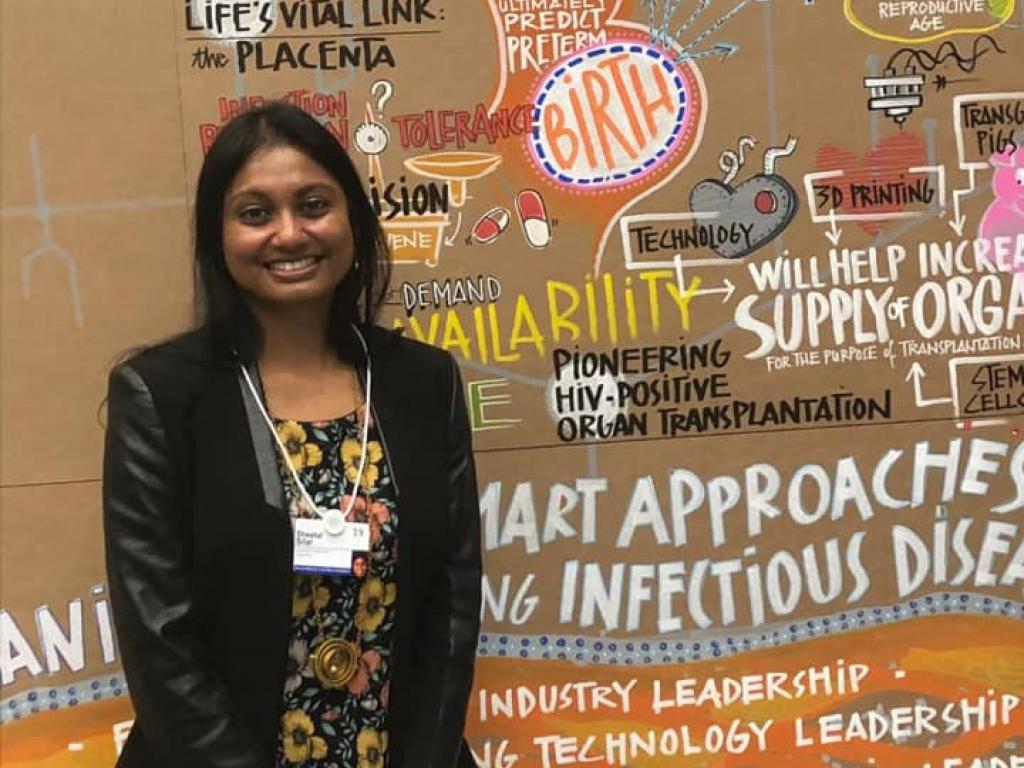5 questions with Sheetal Silal


Dr Sheetal Silal at the World Economic Forum, in Dalian, China
Dr Sheetal Silal is a senior lecturer in the UCT Department of Statistical Science. She heads up the Modelling and Simulation Hub, Africa (MASHA), and is an honorary visiting research fellow in tropical disease modelling at the Nuffield Department of Medicine, Oxford University.
During July, she will discuss her research at the World Economic Forum’s (WEF) IdeasLab, to be hosted by UCT in Dalian, China. Along with two other UCT researchers – Drs Nadia Ikumi and Elmi Muller – she will present her research to industry leaders, chief executives of top-ranked multinational corporations, heads of government and ministers and leaders from media, academia and civil society.
1. How can mathematics help us tackle disease?
It’s like Galileo said, “Mathematics is the language in which God has written the universe.” We can use maths to portray how a disease behaves, examine how we can intervene to manage it and even learn new things about its epidemiology.
2. How can modelling inform policy?
Think of a mathematical model as a video game – like Minecraft or SimCity – where you build a virtual reality of how a disease might spread. If you can do that, then you can answer questions like, ‘What can government do to contain the disease?’, ‘How much will it cost?’ and ‘How many people should be vaccinated before the whole population is protected?’
3. What’s been your most surprising research finding to date?
In exploring the impact of human migration on malaria elimination in South Africa, my models showed that it was possible to eliminate malaria in South Africa only if malaria incidence was dramatically lowered in Mozambique.
Through an international collaboration, we modelled and costed this reduction in Mozambique and put forward a proposal to South Africa’s National Treasury. In the 2019 budget speech, Finance Minister Tito Mboweni allocated ZAR319 million towards malaria elimination in South Africa.
Think of a mathematical model as a video game – like Minecraft or SimCity – where you build a virtual reality of how a disease might spread.
4. Does Africa need more mathematical modellers?
In my travels throughout our continent, I have found that we have very talented mathematicians and mathematics students. This talent needs to be harnessed and channelled through funding and research projects to support our governments to control the diseases that continue to devastate our people. It has been my long-held belief that Africans can solve Africa’s problems.
5. What inspires you?
I have been researching disease modelling for more than 10 years. What inspires me to remain in this field is that this research can make a difference to people’s lives. Science is growing every day. Twenty years ago, this kind of modelling was practically impossible. But today, scientific and technological advancement has allowed mathematical modelling to become an invaluable tool in shaping health policy and saving lives. It’s the impossible made possible through science.
Story: Staff Writer
Photo: Supplied
